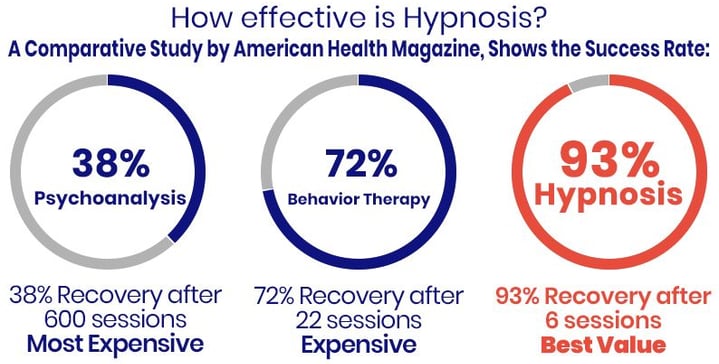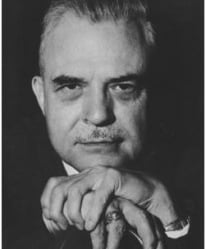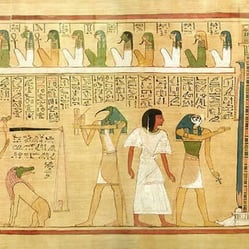
What is Hypnosis ?
Hypnosis is not a new concept; we all experience self-hypnosis unknowingly during our daily activities. This natural state of relaxation helps our bodies manage stress effectively, preventing its harmful effects.
Hypnosis is a technique used to induce a deeply relaxed state of mind, making individuals more receptive to suggestions for therapeutic purposes. It motivates people to explore and harness the full potential of their minds.
Hypnotherapy allows individuals to access their subconscious mind, facilitating changes in habits, beliefs, and thought patterns, which can significantly impact overall health and well-being.
In a hypnotic state, the conscious, critical mind becomes relaxed and relatively inactive, allowing access to the subconscious mind with the person's permission. This state of consciousness opens a doorway to inner thoughts and feelings.
Hypnotherapy is fundamentally about communicating ideas and understandings to an individual in a way that encourages them to explore their own potential. This exploration can lead to greater control over psychological and physiological responses and behaviors.
Hypnotherapy is a cooperative and collaborative relationship between the therapist and the individual. The person undergoing hypnotherapy remains relaxed, comfortable, focused, and in a state of daydream-like thinking, facilitating a conducive environment for positive change.


What happens in hypnosis ?
Increase focus
Reduce peripheral awareness
Reduce muscle tension
Reduce logical /analytical thinking
Individual will accept suggestion/instructions easily
Individual may reject suggestions that are not acceptable
Increase in feeling ,intuitive and creative thinking


Misconceptions about hypnosis ?
It is not sleep
You do not lose control
You do not reveal any secretes
You are completely aware of hypnotic process and will not do anything against your morals and ethics
Part of your mind observes the complete hypnotic process & can stop it if you want
You can not be hypnotized against your will
It is not entertainment


How effective is hypnosis ?
It is non-invasive.
It is drug-free.
It is inexpensive tool.
It uses potential of our mind.
It is nonpharmacological treatment.
It is alternative & complementary therapy.
It uses natural trance that we experience everyday.
It is recommended mode of therapy by Ministry of Health & Family Welfare, Govt of India2003.


History of Hypnosis in Ancient India & Modern Times
Hypnosis, known as "Sammohana" in Indian history, has been an integral part of Yoga Vidya (the science of yoga) and has been practiced in India since Vedic times. Many yogis and sages utilized self-hypnosis during meditation to still their minds.
Evidence of the use of Sammohana is found in ancient texts like the Bhagavat Purana, where Lord Vishnu, in his Mohini avatar, alludes the asuras (demons) to procure the amrit kumbh (pot of nectar) and gives it to the devas (gods) (Swami Prabhupada, 1999).
The Atharvaveda, one of the four principal sacred texts of Hinduism, is the oldest source of psychotherapy and includes references of hypnosis and suggestions. For example, it states: “Touching you with these two hands and ten fingers, by my influential speech I speak to you, disease-removing words. By this, you will get health, and all your diseases will vanish.”
The Bhagavad Gita describes interactions between Lord Krishna and Arjuna, where Krishna acts as a therapist. He convinces Arjuna to change his belief system, later reinforced by creative visualizations and suggestions. This implies that the steps followed in modern-day hypnotherapy may have roots in ancient scriptures like the Bhagavad Gita.
There are also similarities between the trance states of hypnosis and yoganidra mentioned in Patanjali's Yoga Sutras.
In ancient Egypt, there were "Sleep Temples" where individuals would go for healing through induced trance states.
In modern times, Sigmund Freud, often referred to as the "father of modern psychology," used hypnosis in his practice. Through his work with hypnosis, Freud discovered the unconscious processes, which were significant findings for psychoanalysis.
The most prominent figure in modern hypnosis is American psychiatrist Milton Erickson, who specialized in medical hypnosis and family therapy. He was a master of using language creatively to communicate with patients’ unconscious minds. His outstanding clinical successes led to the development of Ericksonian hypnosis, which strongly influenced contemporary approaches such as neuro-linguistic programming (NLP)






Online Hypnotherapy for Mind & Body Healing
Natural & scientific approach to wellness through hypnosis.
© 2024. All rights reserved.
